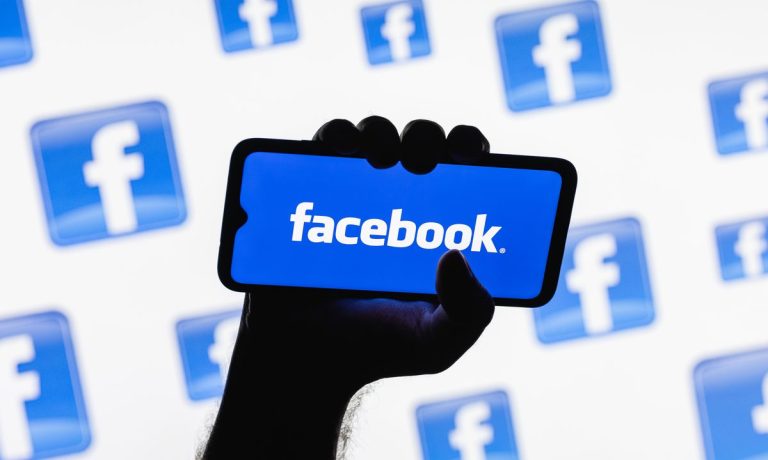Facebook Pins Its 2022 Hopes on the Metaverse, New Ad Tech and eCommerce Tools

Calling the dawning metaverse “the successor of the mobile internet,” Facebook CEO Mark Zuckerberg described “groundbreaking” changes coming to the social media platform and its various holdings during the company’s third quarter earnings call Monday (Oct. 25).
Showing the importance of augmented reality (AR) and virtual reality (VR) to the company’s vision of more actual liveness in connected experiences in the near future, Zuckerberg said the company expects “to make significant changes to Instagram and Facebook in the next year to further lean into video and make Reels a more central part of the experience.”
Giving solid clues to the platform’s plans to transform connectedness itself, he said “With all of the tools we have today, we still can’t feel like we’re right there together with people we care about when we’re physically apart. We can’t teleport as holograms to instantly be at the office without a commute, or at a concert with a friend, or in your parent’s living room to catch up.”
He also confirmed reports that starting in Q4 2021 the company will begin reporting financials of Facebook Reality Labs (FRL) and its family of social apps (Facebook, Instagram, WhatsApp) separately, foreshadowing a $10 billion hit on full-year 2021 operating profits as a result.
“Our three product priorities remain our focus on creators, commerce and building the next computing platform,” Zuckerberg said, calling the platform’s Reels on Facebook video initiative — a shot across the bow of competitors such as TikTok and Snapchat — “a primary driver of engagement” and a major focus of innovation next year and into the future.
See also: Facebook’s Earnings May Hint at Business Model’s Resiliency
Younger Users in the Spotlight
In an earnings call packed with non-earnings news, Zuckerberg said Facebook is “retooling” to serve “young adults, rather than optimizing for the larger number, older people.” Conceding that the shift in focus “will likely mean the rest of our community will grow more slowly,” he said the outcome will be “that our services become stronger for younger adults.”
Calling commerce a top priority, he said “helping people discover new products that they’re interested in and reach customers inside our apps [is] going to unlock a lot of opportunities.”
Partly a response to changes in Apple data policy “that make eCommerce and customer acquisition less effective on the web,” he said, “solutions that allow businesses to set up shop right inside our apps will become increasingly attractive and important.”
Changes to Facebook Ads that “dynamically link to either a business’s website or their shop on our platform” are expected to help creators and online sellers grow across the portfolio.
Zuckerberg said Facebook will roll out new commerce tools in Q4 starting with its largest online shops and sellers, adding: “Our plan is to then scale those solutions more broadly in 2022.”
Read also: Facebook Name Change to Reflect Metaverse Move
Approaching the Metaverse Moment
Zuckerberg returned to Facebook’s metaverse plans several times during the call, terming it “critical to our mission because it’s delivering a sense of presence, like you’re right there with another person. That’s the holy grail of online experience.”
Over the next decade, Zuckerberg said, pursuit of immersive AR/VR experiences powered by more sophisticated artificial intelligence (AI) and machine learning (ML) will bring about “a massive increase in the creator economy and the amount of digital goods and commerce. If you’re in the metaverse every day, then you’ll need digital clothes, digital tools,” he said, adding that the goal is “to help the metaverse reach a billion people and hundreds of billions of dollars of digital commerce daily.”
While Facebook recently debuted its EssilorLuxottica Ray-Ban Stories smart glasses, Zuckerberg said “this isn’t about building one glasses product. There’s a whole ecosystem” that will include multiple generations of AR/VR wearables and new digital experiences to match.
On the earnings front, Facebook reported a $9.2 billion profit on $29 billion in Q3 revenue, a rise of 35% year over year. Pulling no punches, Chief Operating Officer Sherly Sandberg said Apple’s iOS 14 update “created headwinds for others in the industry as well, major challenges for small businesses, and advantaged Apple’s own advertising business.”
Sandberg said Apple’s changes have decreased ad targeting capabilities for Facebook, “which increased the cost of driving outcomes for our advertisers,” adding that “measuring those outcomes became more difficult.” She said Facebook’s ad conversions are now underreported.
In response, she said Facebook is “building commerce tools to help businesses reach more new customers and get more incremental sales.”
Sandberg also noted that “strong eCommerce growth in recent quarters driven in part by the acceleration of digital transformation is now tapering off” as pandemic effects ease and consumers do more physical shopping.
See also: With Ad Revenue at Stake, Facebook Has a User Numbers Problem